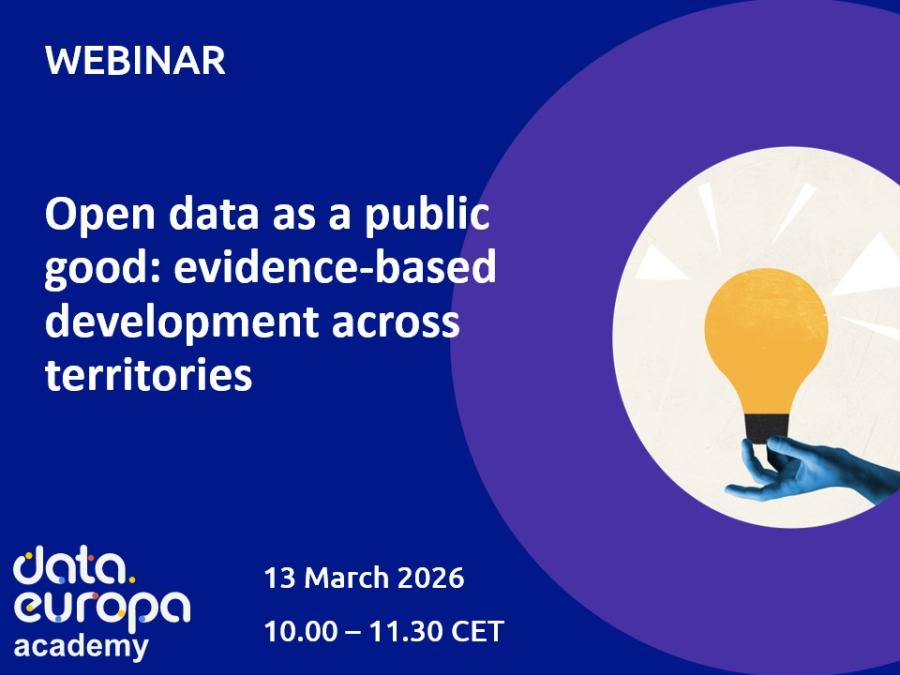Svezia
Immagine

Blog da: Svezia
Skip results of view Country Insight Blogs
Nessun articolo al momento
Use cases in: Svezia
Skip results of view Use cases
The Grafana project was started by Torkel Ödegaard in 2014 and has the last couple of years become one of the most popular open source projects on GitHub. They build open software, with permissive licenses. It allows you to query, visualise and alert on metrics and logs no matter where they are stored.
The Grafana project was started by Torkel Ödegaard in 2014 and has the last couple of years become one of the most popular open source projects on GitHub. They build open software, with permissive licenses. It allows you to query, visualise and alert on metrics and logs no matter where they are stored.
Kläder efter väder (Clothes after weather) is a mobile application that visualises what types of clothing are best to wear in the current weather. The application is designed for people with cognitive disabilities as they encounter difficulties is dressing appropriately for the forecast.
Relazioni in: Svezia
Skip results of view Documentazione

Study
Data sharing as a service: will data services remove intellectual property rights from the picture, and at what cost?

Scarica
Eventi sui dati aperti in: Svezia

Do you want to explore how open data can support better governance in rural areas and help policymakers respond to local needs beyond the city? Join us for the upcoming data.europa academy...
Nessun evento previsto al momento
Open Data News in: Svezia
Skip results of view Ultime notizie sui dati aperti





On Friday 16 February 2024, from 10.00 to 11.30 CET, the data.europa academy hosted the webinar ‘Open data maturity 2023: best practices across Europe‘ which highlighted Slovakia's and Serbia's accomplishments in the field of open data. With nearly 600 registrants, the event underscored the growing interest and commitment to open data across the continent. An expert from data.europa.eu initiated the session by presenting the ODM results , setting the stage for in-depth country analyses. Following this introduction, the narrative shifted to Serbia . In just two years, Serbia demonstrated

On 1 March 2024 , from 10:00 to 11:00 CET , our webinar on "New b usiness m odels for d ata- d riven s ervices" is set to provide fresh insights into the utilisation of open data. Th e event, building on the data.europa.eu discussion paper , aims to explore how public sector information, when made available as open data, can be purposefully re-used to creat e value for both public and private sectors . In recent years, the focus on open data has shifted towards understanding and meeting end-user needs. Th e webinar will examine the potential of open data in Europe, exploring how it can drive

This year marks the fifth anniversary of RescEU, an initiative by the European Commission that has strengthened disaster response mechanisms across Europe. Established to extend the EU Civil Protection Mechanism, RescEU embodies a deep commitment to protecting citizens from diverse disasters and managing emerging risks effectively. Since its launch in 2019, RescEU has served as a robust reserve of European capacities, fully funded by the EU. This includes a fleet of firefighting aircraft, medical evacuation planes, and critical medical supplies and field hospitals, ready to tackle health

The International Day of Women and Girls in Science, celebrated on 11 February, highlights the critical role women and girls play in science and technology. This year, the focus is on "Women in Science Leadership: A New Era for Sustainability," recognising their contribution to tackling global challenges such as health and climate change. The diversity in research, brought by women, brings fresh perspectives, talent, and creativity, essential for sustainable development. Despite progress in higher education, women continue to be underrepresented in Science, Technology, Engineering, and


